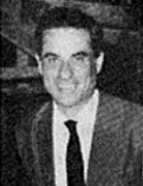

In 1964 , he travelled to Brazil , where he remained until 1969 as a Full Professor at the University of São Paulo through the intercession of Eurípedes Simões de Paula. In São Paulo, his vocation as a professor would be put to the test, making disciples and friends who would keep his memory alive – a friendly man, he himself would quote Fernando A. Novais, Boris Fausto , and Carlos Guilherme Mota among his younger colleagues. There, he lectured on the History of Iberian Civilisation and the History of Portuguese Culture. The gentle man found a favourable environment in Brazil, where his role as a lecturer and researcher was recognised by his peers. His presence left its mark: his peers named one of the rooms in the History D epartment of the School of Philosophy, Arts and Human Sciences the Joaquim Barradas de Carvalho Room.
Although always tolerant, the historian fought with his intellectual weapons: teaching, cultural dissemination and even the anti-fascist writings he published in the Brazilian press (especially in the Estado de São Paulo and above all in Portugal Democrático [Democratic Portugal] , the exiles ’ newspaper, articles from 1965-1969 that were collected in O Obscurantismo Salazarista [Salazar’s Obscurantism] ). However, in 1969, the Brazil of the military dictators was also becoming an unwelcoming place for an exile d person . So , he returned to France. Finally, after the 25 April 1974 Revolution, he returned to Portugal, but it was only in 1977 that he was hired as a Visiting Professor at the School of Arts and Humanities of the University of Lisbon. He would remain there for a short while, as his life ended a few years later. Historian and citizen. The two qualities were not separated in his personality , and he sought to intervene politically in favour of the freedom , which he was denied.
JBC was a scholar by vocation and taste. As a student of Vitorino Magalhães Godinho at the School of Arts and Humanities in Lisbon, he credited him with having guided him along the path of History rather than Philosophy, which would have been his first aim. Not by chance, his debut book is a reflection on technique and economic history, certainly to the master ’ s taste. It reads: ‘The great voyages of discovery created a new mentality. Action gradually replaced contemplation. In the realms of thought, scientific thinking, based on experimentation, begins to take hold ’ ( As Invenções Técnicas … [Technical Inventions] , [1943], p. 3).
This work is financed by national funds through FCT - Foundation for Science and Technology, I.P, in the scope of the projects UIDB/04311/2020 and UIDP/04311/2020.
